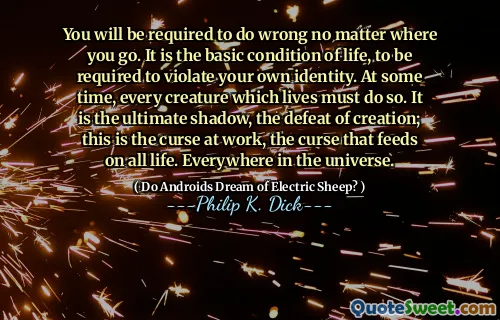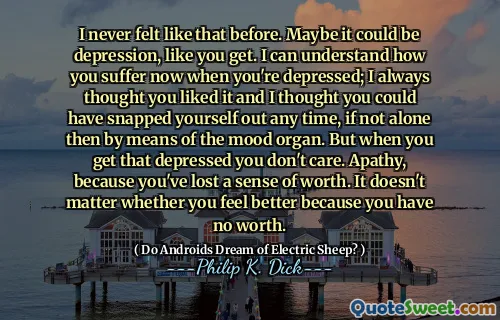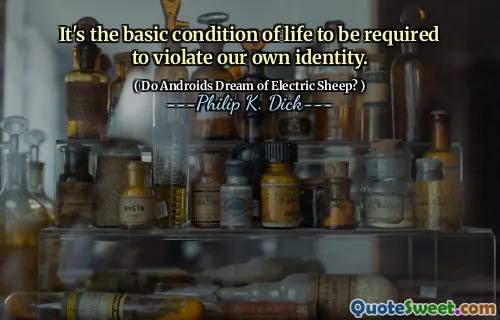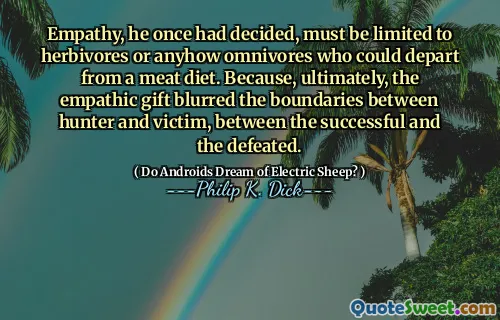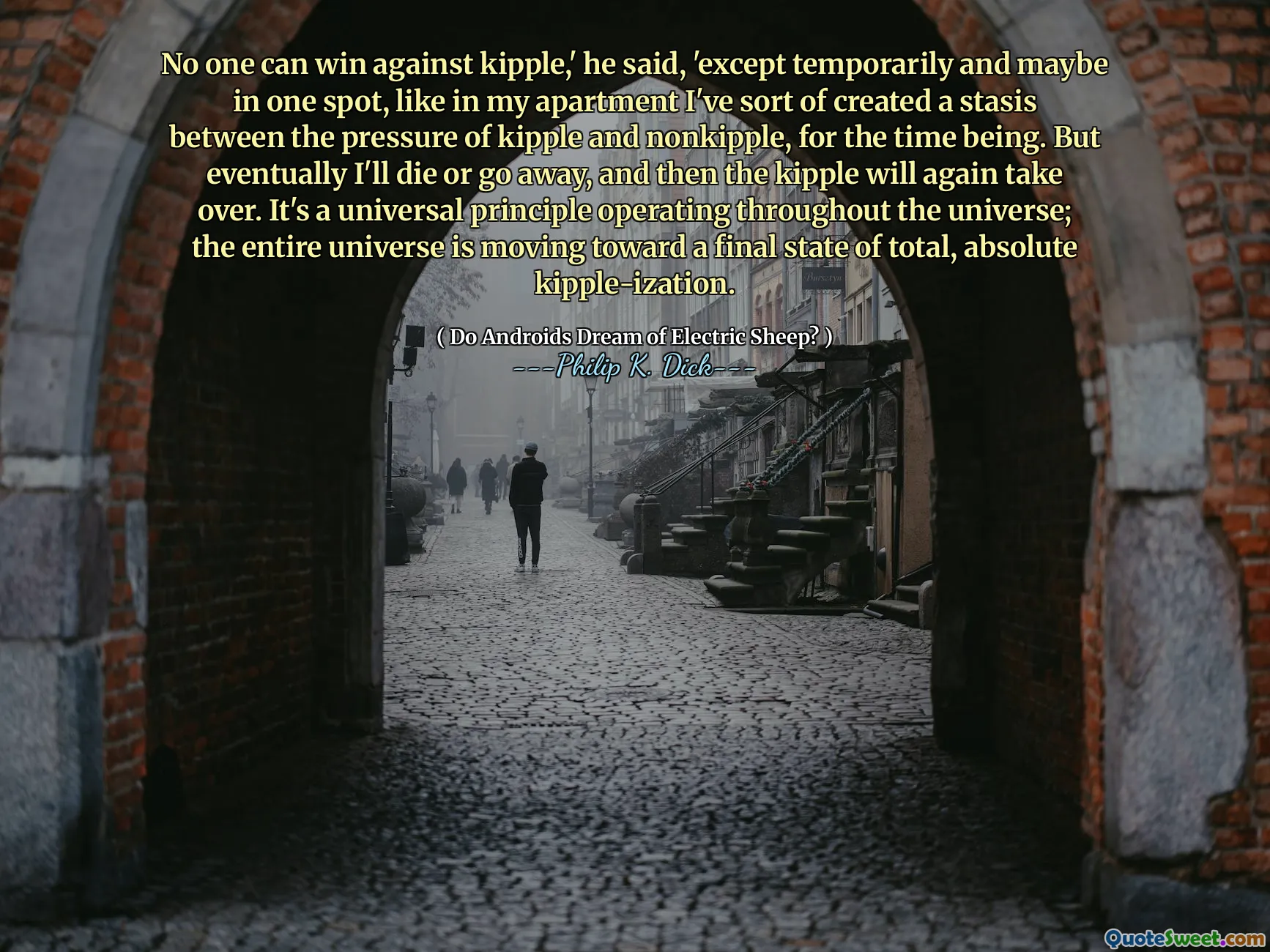
No one can win against kipple,' he said, 'except temporarily and maybe in one spot, like in my apartment I've sort of created a stasis between the pressure of kipple and nonkipple, for the time being. But eventually I'll die or go away, and then the kipple will again take over. It's a universal principle operating throughout the universe; the entire universe is moving toward a final state of total, absolute kipple-ization.
In the excerpt from Philip K. Dick's "Do Androids Dream of Electric Sheep?", the concept of 'kipple' represents the inevitable clutter and chaos that permeates life. The narrator reflects on a temporary victory against this disorder in his apartment, highlighting a fleeting sense of control amid the overwhelming presence of kipple. This illustrates a human struggle against entropy, which is constantly at odds with our efforts to maintain order in our lives.
Moreover, the narrator acknowledges the futility of this struggle, suggesting that despite moments of stasis, the inevitable decay and accumulation of kipple will eventually prevail. This idea serves as a poignant reminder of the universal tendency towards disorder, reinforcing the notion that no one can fully escape the clutches of chaos. Ultimately, it reflects a deeper philosophical consideration of existence, emphasizing the transient nature of human efforts against the inexorable forces of the universe.

